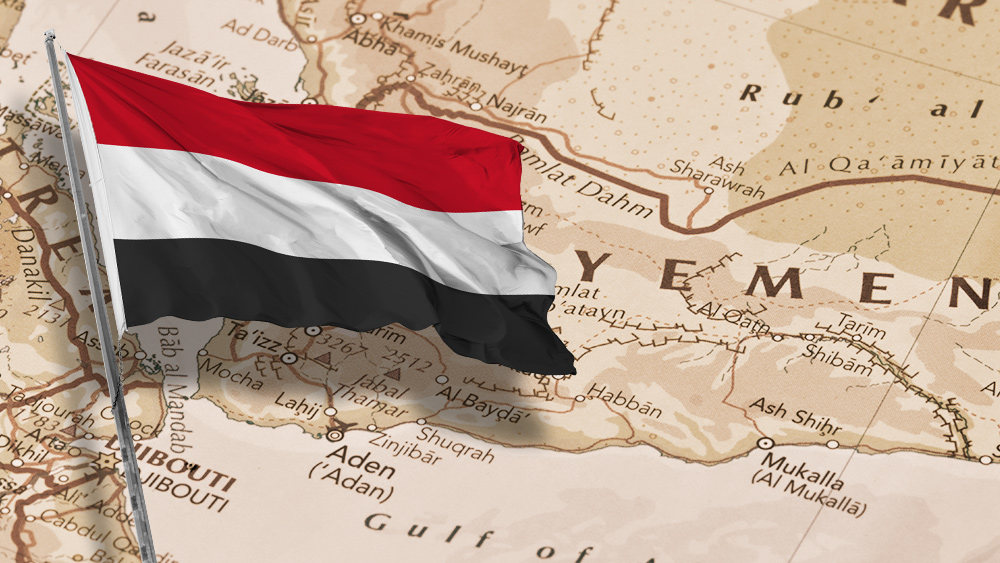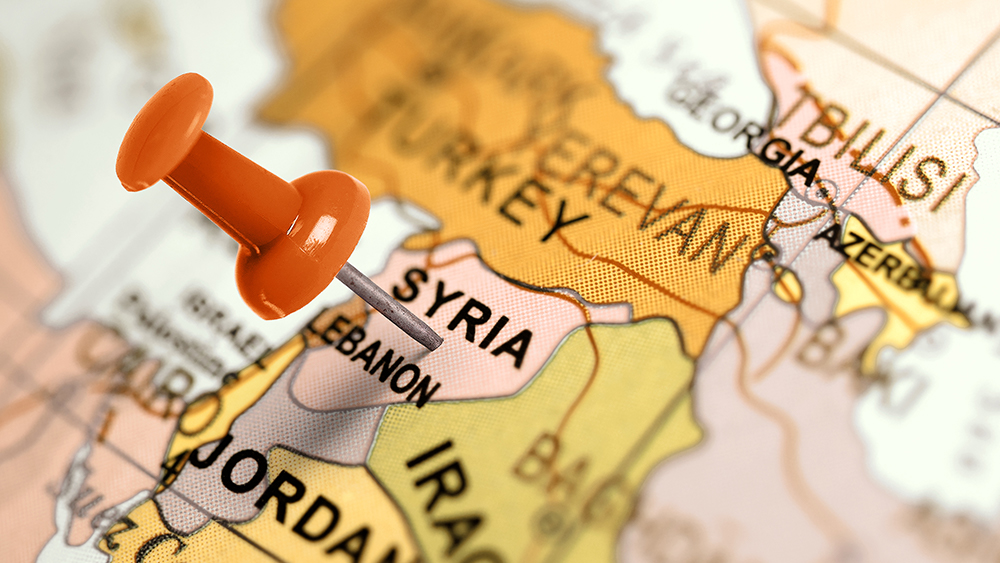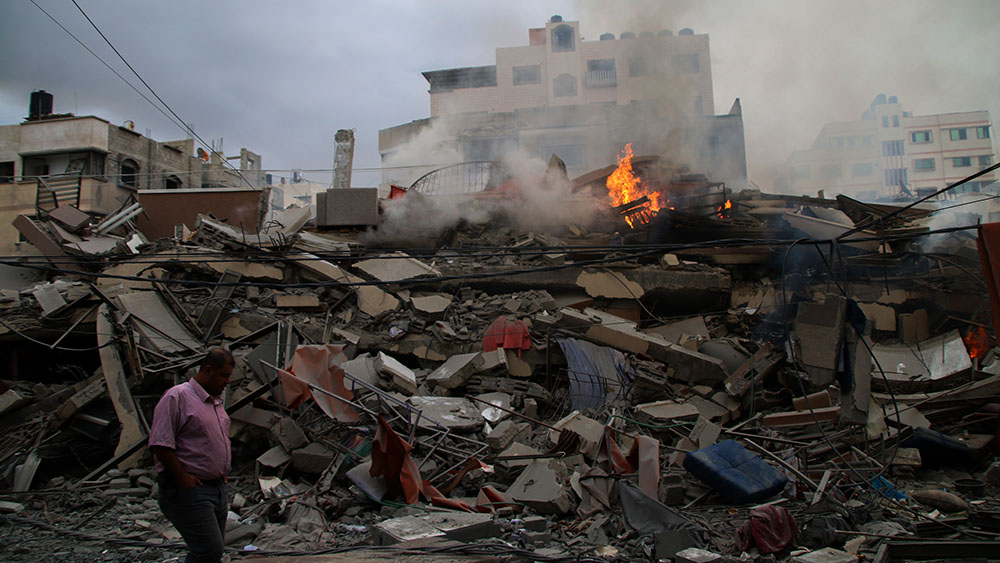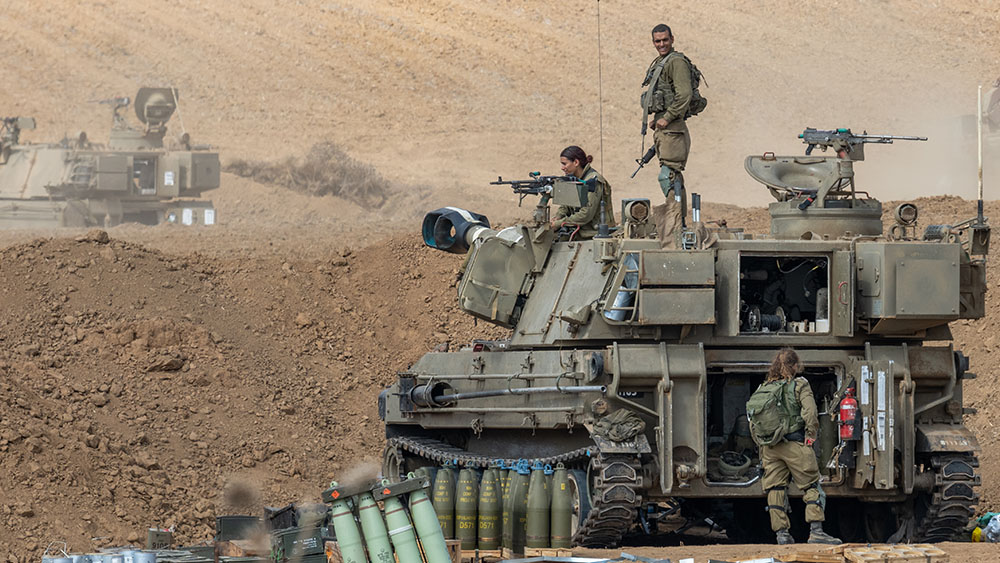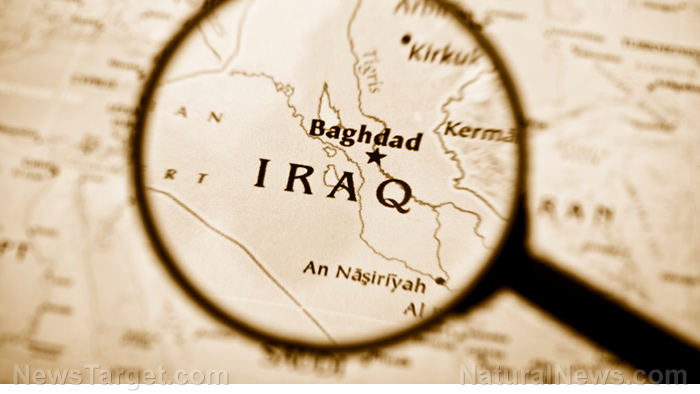
The United States has launched military strikes in Baghdad, aiming to neutralize individuals believed to be responsible for the attack on an American base in Jordan that led to the death of three servicemembers.
According to a statement from U.S. Central Command, a commander associated with the Kata'ib Hezbollah terror group, directly involved in planning and executing attacks on U.S. forces in the region, was killed in the strike. (Related: U.S. forces strike Hezbollah facilities in Iraq.)
This move follows the administration of President Joe Biden's recent retaliation against Iran-backed militant groups in Iraq and Syria. Last week, a series of air campaigns saw long-distance bombers dropping 125 precision munitions on suspected terrorists. However, the strikes have faced criticism from Iraqi authorities, who claim that civilians and Iraqi Security Forces personnel were killed without prior notification.
The Biden administration clarifies that these retaliatory actions are aimed at countering Iran-backed groups forming the "Islamic Resistance in Iraq," which the Pentagon holds responsible for attacking U.S. troops. Kata'ib Hezbollah is one such group within this alliance.
State Department Deputy Spokesperson Vedant Patel defended the strikes, stating that the targets were carefully chosen to minimize civilian casualties. Despite these assurances, Iraqi officials condemned the U.S. operation, asserting their rejection and denunciation of American aggression against Iraqi security forces and civilian sites.
Recent strike represents a potential escalation in violence
The situation takes a significant turn as the United States, for the first time, targets an individual believed to be directly responsible for the attack in Jordan. Previous operations focused on infrastructure associated with munitions and rockets.
Photographs from the scene suggest that the strike was initiated by a drone against a moving car in the eastern part of the Iraqi capital, representing a potential escalation in violence. While the U.S. military had previously confined its operations to the rural border with Syria, this shift marks a more direct response against those allegedly behind the attack in Jordan.
The ongoing attacks on U.S. forces have prompted calls from hawkish members of Congress for more robust action, including strikes inside Iran.
However, Biden emphasized how his Pentagon is conducting a multi-tiered response against those responsible for the Jordan attack while stopping short of engaging in a full-fledged war with Iran.
The recent U.S. drone strike in Baghdad that targeted and killed a commander of the Iran-aligned group Kataib Hezbollah has drawn condemnation from Iraq, raising concerns about the impact of such actions on the region's stability.
Iraqi Armed Forces spokesperson Yahya Rasool stated on Thursday that the United States-led military coalition in Iraq is becoming a "factor for instability" and warned that these repeated attacks are pushing the Iraqi government to consider ending the coalition's mission.
The latest strike has intensified tensions and sparked discussions about the future of the U.S.-led coalition's presence in Iraq.
Rasool emphasized that the coalition's actions are causing instability and could entangle Iraq in an ongoing cycle of conflict. He criticized the U.S.-led coalition for engaging in what he described as "clear-cut assassination operations" without sufficient regard for the lives of civilians and international law.
U.S. Secretary of State Antony Blinken defended the strikes, stating that the U.S. is taking preemptive action to prevent escalation in the region. However, critics argue that the U.S.'s military actions are contributing to heightened tensions, particularly in the context of recent events in the region.
The situation has prompted calls for the Iraqi government to reassess its relationship with the U.S.-led coalition. Last month, Iraqi Prime Minister Mohammed al-Sudani suggested that talks would be held to determine a schedule for ending the coalition's tasks in the country. The recent drone strike has further fueled discussions about the strategic implications of the U.S.'s military presence in Iraq.
In response to the strike, Iraq's Harakat al-Nujaba movement vowed "targeted retaliation," indicating that they view the U.S. actions as provocations that demand a firm response.
Meanwhile, the Palestinian group Hamas and Lebanon's Iran-backed Hezbollah group have criticized the strikes as violations of Iraq's sovereignty and security.
Watch this clip from Tru News discussing the recent U.S. drone strikes in Iraq.
This video is from the DWP97048 on Brighteon.com.
More related stories:
U.S. carries out AIRSTRIKES in Syria and Iraq – but Iran remains untouched for now.
Nearly 60 U.S. troops in Iraq and Syria injured in series of attacks by Iran-backed militias.
Sources include:
Please contact us for more information.















